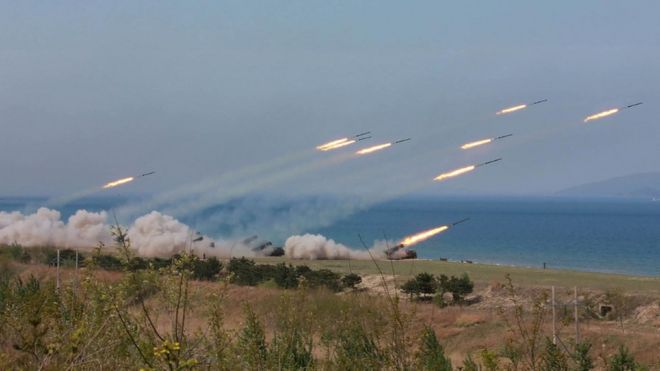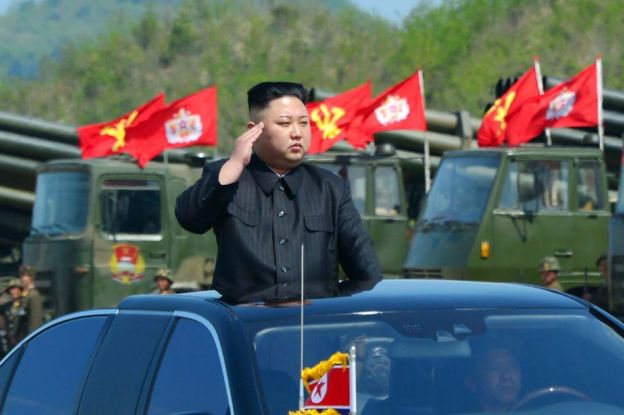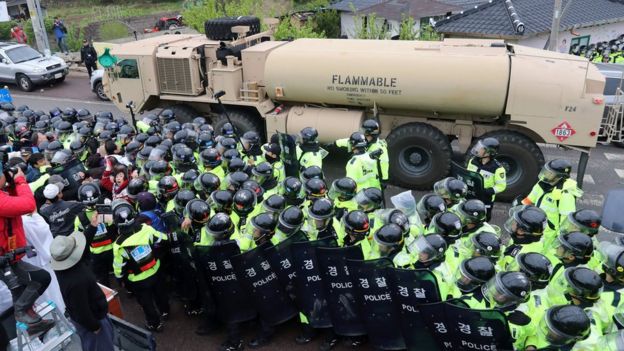
President Donald Trump's strategy was announced after a special briefing for US senators.
Earlier, the top US commander in the Pacific defended the deployment of an advanced missile defence system in South Korea.
Tensions have risen amid fears the North is planning new weapons tests.
"The United States seeks stability and the peaceful denuclearization of the Korean peninsula," said a joint statement issued by Secretary of State Rex Tillerson, Defense Secretary Jim Mattis and Director of National Intelligence Dan Coats.
"We remain open to negotiations towards that goal. However, we remain prepared to defend ourselves and our allies."
"The president's approach aims to pressure North Korea into dismantling its nuclear, ballistic missile, and proliferation programs by tightening economic sanctions and pursuing diplomatic measures with our allies and regional partners," the US statement said.
The North is already under strict UN sanctions over its weapons programmes.
A key part of the plan, it seems, is to pressure China to lean more heavily on Pyongyang to freeze its nuclear weapons programme, the BBC's Barbara Plett Usher reports.
This undated picture released by North KoreaImage copyrightAFP
A White House official said another option under consideration was to put North Korea back on the state department's list of countries that sponsor terrorism.
Mr Trump's predecessor, Barack Obama, imposed sanctions on the North just over a year ago following a nuclear test and satellite launch by the North.
North Korean government property in America was frozen and US exports to, or investment in, North Korea was banned.

US senators were briefed by the Trump administration on the seriousness of the threat from North Korea and the president's strategy for dealing with it on Wednesday.
In an unusual move, all 100 senators were invited to travel by bus from Capitol Hill to the White House to attend the briefing.
Earlier Admiral Harry Harris, head of US Pacific Command, said the US would be ready "with the best technology" to defeat any missile threat.
The deployment of Terminal High-Altitude Area Defense (Thaad) system in South Korea was aimed, he argued, at bringing North Korean leader Kim Jong-un "to his senses, not to his knees".
Adm Harris said he believed that North Korea would try to attack the US as soon as it had the military capabilities.
"With every test Kim grows closer to his goal, which is using nuclear weapons on US cities," he told the House armed services committee in Washington DC.

Leave a Comment..
EmoticonEmoticon